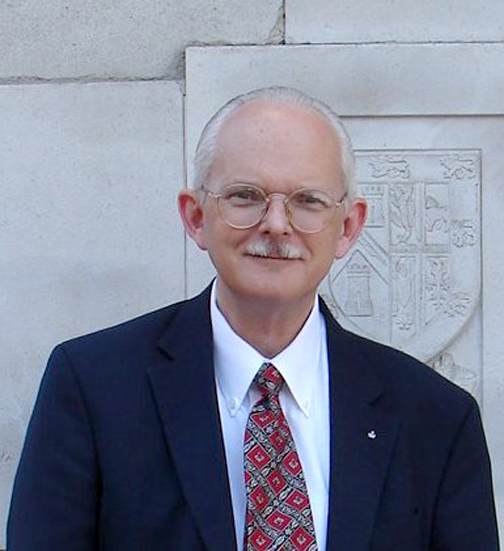QUESTION: My problem, and it may not seem like a problem to others but it bothers me, is when I give gifts to my daughter’s family only to hear every time, “You spend too much money on us.” My husband passed away four years ago and left me a sizeable inheritance. I can afford to buy nice gifts and I really enjoy shopping for them. The money I spend will not diminish their inheritance, either. I have been so blessed with what I have and I’ve told them I don’t expect expensive gifts. Just being with the family is my joy.
Is there anything I can say to them that isn’t scolding but helps them understand how I feel? ~ Generous Mom
Dear Generous Mom,
In the Science of Mind, we can deal with challenges on both a spiritual and a practical level. The two are never opposed to one another but complement. Here is a practical suggestion:
In the giving and receiving of gifts, sometimes clarity is an important issue. In our society, the role of giving and receiving a gift can take on many levels of meaning from a detached generosity to an intended sense of obligation. It is common for many people to perceive gifts as often entailing a sense of obligation, a sense of debt on the part of the receiver to the giver. Indeed, such gifts can often create more resistance and distance between the two parties than what the giver intended or hoped for. Clearly, you do not feel or intend your gifts to be gifts entailing an obligation. But when one hears the protest “You spend too much money on us,” that is the underlying issue of concern and there is the need on their part for a convincing clarity of intention. It is also clear from your letter you have already sensed that and wish to know how to deal with it.
So, as you rightly ask, how do you deal with this? No one has really sat any of us down and taught us how to graciously give or receive. I once had a similar problem giving a gift to a friend that I really wanted them to have only to be surprised at their discomfort and reluctance to take it.
I remember reading many years ago John Steinbeck’s introduction to his book “Log From The Sea Of Cortez.” In it he talks about his friend Doc. Doc was a giver. When he gave you anything, it was yours. There was no implied and assumed debt. It was a gift without any obligation and his friends knew and accepted that. So I actually pulled out the book and opened it to that section, and had my friend read it to himself right there in front of me. You could see the relief on his face as he finished and he cheerfully accepted what I knew was a much-needed gift. He just needed the clarity on how and why it is was okay to receive. Over the years, I have used this on few occasions with the same satisfactory result. I would encourage you to buy the book and do the same. I think you will be amazed at how successfully it will address your question and need to reassure your family of your good intentions, and give them the peace of mind they need to become gracious receivers.
The spiritual solution can be as effective as the practical even when the practical may not be possible. Ernest Holmes once said we live in a spiritual world. This material world we believe is real is nothing more than a reflection of the spiritual world. In other words, the outer world is a reflection of the inner world. Thus, if we wish to change anything on the outside of us, we need merely to change what is inside of us. In other words, we need only to change our thinking. One of the ways to do that is with the use of affirmative prayer. Here is a brief affirmative prayer you can also use to heal this situation; repeat it whenever you feel there is the need for its truth. “I am a divine giver. I bless and uplift all with my gifts of love and caring. My gifts bless and uplift my family without any burden or obligation. My gifts are joyfully received and recognized as the expressions of love and caring I intend. They are always graciously, joyfully, willingly and thankfully received with blessings and peace of mind for all. And so it is.”

Anthony Kelson, RScP
anthony@apkelson.com
Dear Generous Mom,
What a blessing to have more than enough and share that blessing with others. When my father passed away, my mother was in a similar position and she loved to shower her grandchildren with gifts. While I was very appreciative there was a small part of me that felt bad. It was the small human side that felt unworthy, that believed you have to earn everything yourself in order to be deserving or that unless you could reciprocate it was selfish to accept extravagant gifts. And telling my mother this only made her feel bad too and made me look ungrateful.
As a minister of Religious Science now, I have learned that our spiritual selves know that we are already deserving and worthy ¬– just for being. “I am” is a complete statement. We live in an abundant world and there is more than enough for everyone. However, we can only accept what we feel comfortable and deserving of receiving. I am assuming that you have tried to tell your daughter’s family that it brings you deep pleasure and satisfaction to buy them gifts. If you are concerned about it coming across as “scolding,” I would caution against telling them how they “should” or “shouldn’t” feel. Not everyone is comfortable receiving expensive gifts. So if it is truly making your in-laws uncomfortable, perhaps you can find other ways to show your generosity. You could just spend more time with them, as you state that is your true ultimate joy. Perhaps you can donate to charities and causes in their name. Another suggestion is to just buy gifts for the usual occasions that arise versus all the time.
At the end of the day, what is it that you truly want for your daughter and her family? To be happy, I would imagine. As we know, happiness is a state of mind and can’t be bought. The happiness we feel from objects is fleeting. True happiness comes from savoring moments and experiences with each other. You say you really enjoy shopping for them, so ask yourself what other need shopping is fulfilling. Be honest without judgment. Are you filling your own need for love? Can it be your way of feeling needed or useful? Is it that you wished you could have done this when your husband was alive? Once you find your answers, you may find another way to get your needs met without spending “a lot of money” on your daughter’s family.
Lastly, remember that love is at the core of our being. Give from your heart and allow the energy of love to flow to and from your family. You may find that it is all you really needed in the end.
Love & Gratitude,
Rev. Dr. Ellen Contente
efcontente@gmail.com
QUESTION: When we learned we couldn’t have our own biological children, we decided to adopt children from diverse populations. We adopted a little boy from an orphanage in Haiti. At the time, he was 2 years old. Two years later, we went to Korea and adopted another little boy, who was 18 months when we adopted him. Now, after three years, we’re adopting two little Russian girls from the same family. That adoption is being held up because of the COVID-19 virus, but we Skype with them regularly.
What we were sad to learn when our oldest began to attend school is the prejudice that exists here in a country that is supposed to be “the land of opportunity” for all. We believe that, regardless of skin color, we are all God’s children. To help us help our children and educate others, we’ve been attending classes about diversity. The problem is, those of us who are taking the class are not prejudiced. Is there an effective way to wake up people who are prejudiced against anyone who is not like them?
~ Perplexed Parents
Dear Perplexed Parents,
First of all, bless you for extending yourself to children who need love and care who are not your biological progeny. Many people do care about children, however, few step up and give their time, treasure and home to little ones in need.
Why is it that some people don’t look at others with an unveiled gaze and an open heart? In the Bible, there is a phrase used over and over again: finding favor in someone’s eyes. Some people don’t ever extend that largesse to others. They don’t discover good things in others. They would rather be judgmental and find fault. This is a mark of an unhappy person.
The person who tries to treat another badly for any superficial reason, for example difference of skin color or physical anomaly, is a person who is missing and has not achieved acceptance of themselves by themselves. There is not one of us human beings who are without flaw. If you accept yourself you know this. If you know that all are different or flawed in some way and that being varied and imperfect is the natural way that we were all created, then all people need to be seen through the eyes of finding favor and not of judgmental distancing.
There are those who think people who don’t look the same are somehow less than. If you think that, you are not accepting the fact that we human beings are all God’s children.
I wish there was an effective way to “wake up people who are prejudiced against anyone who is not like them.” No method will be instant; however, I think that people who meet and get to know your family are going to find a way to enter this beautiful and inclusive path you have chosen.
Rabbi Janet Bieber
jbieber1155@aol.com
Dear Perplexed Parents,
And God spoke: “Let us make human beings in our image, make them reflecting our nature” (Genesis 1:27). According to God, there are no gradations in human beings, no one is more significant than the other: white, black, yellow, brown and people of any color or national origin make up the wonderful and colorful rainbow of God’s creation.
This vision of God is an ideal that inspired Thomas Jefferson when he wrote in the U.S. Declaration of Independence: “We hold these truths to be self-evident, that all men [people] are created equal…”
Sadly, the reality of our country does not necessarily align with these ideals. People of color are the ones who continue to receive the short end of the stick, they are the ones who are given the harshest and longest sentences, the ones who live in fear of the police, and the ones who are dying at higher rates under the COVID-19 pandemic.
You asked about what you can do and I think that you are already doing something huge: giving your children a loving, caring and supportive environment. Your children are blessed to have parents like you who are not content with the world where we live in, parents who want to advocate so that their children and other children who are not white are treated equal. Experiencing love and protection at home will develop in your children the self-confidence and resiliency that they need to live their lives to their full potential.
Are there effective ways to be advocates? I invite you to continue to understand the issues and to equip yourselves on how to ignite conversations in private (like with your friends and family) and public settings (like their schools) that result in safe and welcoming environments for your children, and all children of any color or place of origin.
Because most of the support is more race/ethnicity related, you may need to connect with several groups. A place to start may be an organization called “Hollaback!” with a mission to end anti-Asian harassment (https://www.ihollaback.org/). Please ask the people at Hollaback! about similar organizations supporting other groups.
Also you don’t need to fight this fight alone, and it’s very likely that you are not. In the event that you haven’t done so, I encourage you to find (or form if they don’t exist) affinity groups of other people who are going through the same experiences than you and your family are experiencing (maybe a group of parents with children from diverse backgrounds).
Your children and their generation could be the ones that move us closer to God’s vision for the world and the vision of the founders for the United States.
My prayers are with you!!
Rev. Antonio Gallardo
agallardo@stlukeslacrescenta.org



